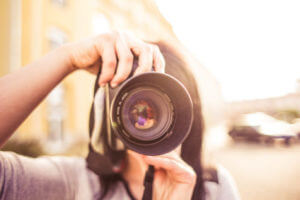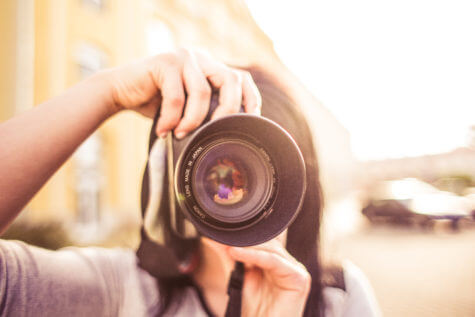WASHINGTON — Remembering every detail of a live concert or family vacation is tough, and many believe that pulling out a camera or smartphone to snap every exciting moment takes away from the experience. It seems they’re wrong though. A new study finds that taking pictures of our surroundings actually helps to enhance our visual memory of experiences.
In fact, the authors found that having a camera with you — even if you didn’t take any photos — boosts a person’s memory of an event.
Researchers at a handful of prestigious universities, including NYU and Yale, recruited 294 participants for a set of studies on the effects of photographing experiences.

With previous research having shown that referential materials— such as the internet or photographs— may enable us to free up our cognitive resources at the expense of our ability to remember, the researchers wanted to explore this phenomenon further.
In particular, was our memory contingent on whether we later revisited the photos we took? Did taking photos only improve visual memory?
For their experiment, the researchers had participants tour a museum exhibit with Etruscan artifacts without carrying any personal belongings. Some participants were allowed to carry a camera with which to photograph.
Those armed with a camera were instructed to take no less than 10 photos, as all participants listened to an audio guide during their tour.
At the tour’s conclusion, participants took a short, multiple-choice quiz that asked them to visually identify objects they had seen, or complete factual statements narrated in the audio guide.
The participants who took pictures fared better on the visual component of the quiz, but did worse on the auditory completion queries.
A separate experiment revealed similar findings, confirming the researchers’ hypothesis.
“These findings suggest that having a camera changes how people approach an experience in a fundamental way,” the study’s authors explain in a press release by the Association for Psychological Science. “Even when people don’t take a photo of a particular object, like a sculpture, but have a camera with them and the intention to take photos, they remember that sculpture better than people who did not have a camera with them.”
In other words, the mere presence of a camera was shown to enhance memory.
The power of this phenomenon was demonstrated amongst participants who were told that their photo would be deleted, or instructed to take a mental image, both of whom demonstrated enhanced visual memory and worsened auditory memory.
The study’s findings were published last month in the journal Psychological Science.
